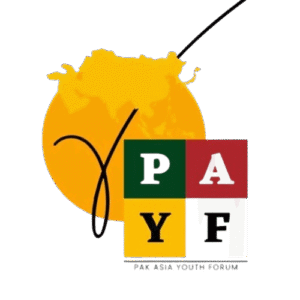On July 8, 2025, the International Criminal Court (ICC) took a significant step by issuing arrest warrants for two senior Taliban leaders: Haibatullah Akhundzada, the Supreme Leader, and Abdul Hakim Haqqani, the Chief Justice. These individuals stand accused of crimes against humanity, specifically citing the systematic persecution of women, girls, and gender non-conforming individuals since the Taliban’s resurgence in August 2021. The detailed charges delineate severe violations, including the prohibition of girls’ education beyond the sixth grade, severe restrictions on women’s freedom of movement, denial of access to employment, and the stringent enforcement of dress codes and gender segregation. These policies have effectively disenfranchised half of Afghanistan’s 41 million citizens, stripping them of fundamental human rights.
A Pattern of Systemic Brutality
The ICC’s findings describe a state-led policy of repression, which has resulted in murder, imprisonment, torture, sexual violence, and enforced disappearances targeting those who resist the Taliban’s ideology. The judges underscored that these abuses have persisted at least until January 2025, confirming their ongoing and systematic nature. Unsurprisingly, the Taliban regime swiftly repudiated the ICC’s authority, dismissing the warrants as “nonsense” and affirming their commitment to enforcing their interpretation of Sharia law irrespective of international legal norms.
Legal Ramifications and Inherent Limitations
This action holds considerable legal significance as one of the rare instances where the ICC has directly targeted top leadership for gender-based persecution. However, it simultaneously illuminates the inherent limitations of the court. Lacking an independent enforcement mechanism, the ICC remains reliant on the cooperation of member states for the arrest and surrender of suspects. Given that Afghanistan is not a party to the ICC, and the Taliban lacks broad international recognition, the practical enforcement of these warrants remains highly improbable.
Unmasking Geopolitical Tensions
The timing of these warrants reveals underlying geopolitical tensions. Merely days before the ICC’s announcement, Russia officially recognized the Taliban as Afghanistan’s legitimate government, a move that starkly contrasts with global condemnation and ongoing reports of severe human rights abuses. This action highlights a fractured and politicized global response to the Taliban regime, underscoring the complexities of international diplomacy.
The Double Standards of Global Justice
Russia itself serves as a salient example of the double standards that undermine the credibility of international justice. Despite an ICC arrest warrant issued against President Vladimir Putin in March 2023 for alleged war crimes in Ukraine, specifically the unlawful deportation of children, he continues to travel freely and engage with world leaders. This impunity is largely facilitated by strategic allies and the reluctance of certain states to act.
Furthermore, while the ICC has acted decisively against the Taliban, a regime with limited international leverage, it appears to exhibit hesitancy when confronting more powerful leaders such as Israeli Prime Minister Benjamin Netanyahu and Indian Prime Minister Narendra Modi. Netanyahu faces ongoing investigations for alleged war crimes in Gaza, including accusations of deliberately orchestrating civilian starvation and conducting indiscriminate attacks that have resulted in over 44,000 casualties, including more than 22,000 women and children. Similarly, Prime Minister Modi’s government has been implicated in severe human rights violations in Kashmir and against minority populations. Yet, geopolitical interests and robust economic ties demonstrably shield these leaders from significant scrutiny and tangible accountability.
Towards a More Equitable Path Forward
These selective approaches paint a deeply troubling picture, suggesting that international justice mechanisms operate boldly against isolated regimes but remain conspicuously silent when faced with powerful actors supported by strong alliances. Human Rights Watch and other advocacy organizations have rightly called for concerted global support to enforce ICC warrants in Afghanistan and to extend justice to all victims, including those harmed by the Islamic State-Khorasan Province and former Afghan security forces.
The ICC’s actions on July 8, 2025, represent a commendable stand against gender-based repression. However, this intervention concurrently exposes the profound flaws and political compromises embedded within the framework of international justice. Without consistent, fearless accountability that transcends geopolitical expediency, calls for human rights and women’s protection will continue to ring hollow, perpetuating cycles of impunity and violence across the globe.



